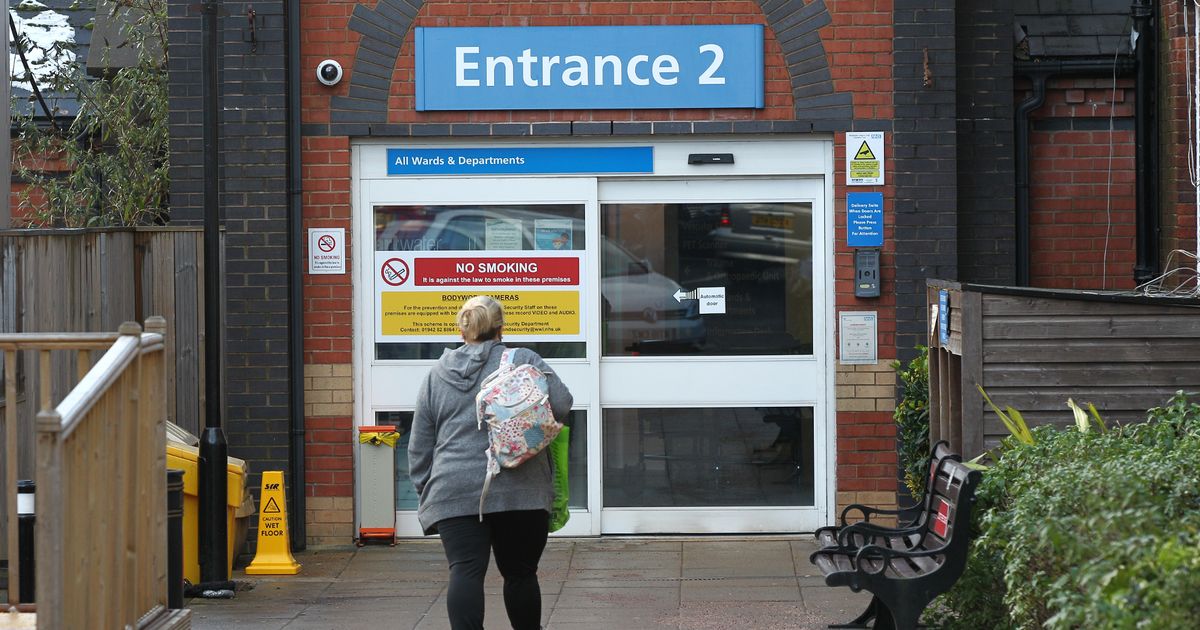One nurse elsewhere in the country has told of how some patients become so distressed by delays that they have left to try and take their own lives
17:29, 14 May 2025Updated 17:46, 14 May 2025
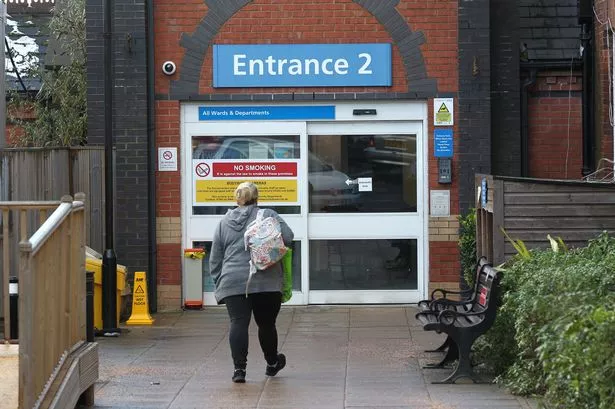 At the Royal Albert Edward Infirmary in Wigan, figures have risen from 112 people waiting more than 12 hours in 2019 to a height of 411 in 2022(Image: Adam Vaughan)
At the Royal Albert Edward Infirmary in Wigan, figures have risen from 112 people waiting more than 12 hours in 2019 to a height of 411 in 2022(Image: Adam Vaughan)
The number of Greater Manchester patients in mental health crisis waiting more than 12 hours for a bed have shot up by hundreds in the past five years.
Three of the region’s biggest A&Es have seen people waiting more than 12 hours for a bed on a mental health unit to be found, after medics have decided to admit them, rise from a total of 115 in 2019 to 717 people in 2024. That’s an increase of just over 523 per cent.
One nurse elsewhere in the country has told of how some patients become so distressed by delays that they have left to try and take their own lives – followed out by nurses and firefighters attempting to stop them.
But staff admit that A&E workers are so busy dealing with patients getting help with physical emergencies that mental health patients end up being looked after by security guards, instead of medical professionals.
Freedom of Information requests to hospital trusts in England by the Royal College of Nursing (RCN) have revealed the appalling extent of these huge waits in some of Greater Manchester’s largest A&Es.
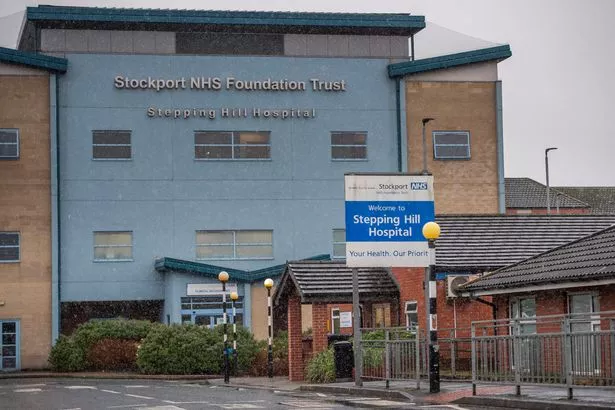 Stepping Hill Hospital in Stockport
Stepping Hill Hospital in Stockport
At Stepping Hill Hospital, the number of people languishing for more than 12 hours in A&E, waiting for a mental health bed to be found, rose from three people in 2019 to 117 in 2024. That’s an increase of 3,800 per cent.
There were 20 such waits in the first two months of this year at the hospital’s A&E.
At the Manchester Royal Infirmary A&E, nobody waited more than 12 hours for a bed after a medic’s decision to admit them to hospital in 2019 and 2020. Figures started creeping up to one person in 2021, 52 in 2022, and 340 in 2023.
By the end of 2024, this figure had shot up to 463, with 90 such waits in the first two months of 2025.
At the Royal Albert Edward Infirmary in Wigan, figures have risen from 112 people waiting more than 12 hours in 2019 to a height of 411 in 2022. This has since been brought down to 379 in 2023, and 252 last year. In January and February this year, 48 of the A&E’s patients waited longer than 12 hours for a bed.
The RCN investigation includes testimonies from staff. Rachelle McCarthy, a senior charge nurse at one NHS trust, said: “It is not uncommon for patients with severe mental ill health to wait three days. Many become distressed and I totally understand why. I think if I was sat in an A&E department for three days waiting for a bed I would be distressed too.”
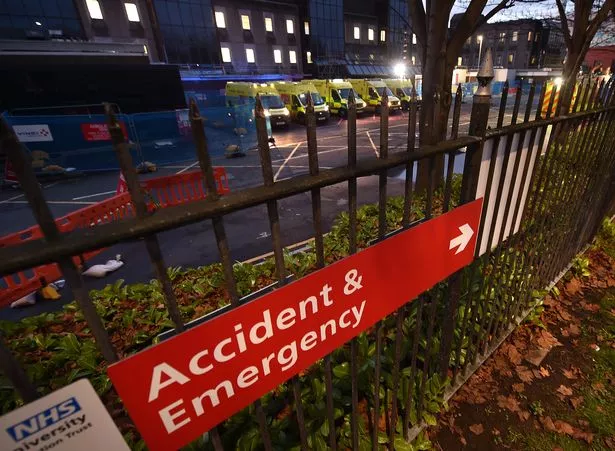 Ambulances at Manchester Royal Infirmary’s emergency department(Image: Sean Hansford | Manchester Evening News)
Ambulances at Manchester Royal Infirmary’s emergency department(Image: Sean Hansford | Manchester Evening News)
The director of nursing at a London trust said the “brightly lit, noisy” environment in her A&E was “close to torture” for those in mental distress and that patients often got so frustrated that they left, the RCN reports.
In one London hospital a senior nurse described an incident where a mental health patient who’d been waiting for a mental health bed for three days became “incredibly aggressive, smashed a glass window, threatened staff and threw his own laptop across the room”. Once the situation was calmed down, he said: “I shouldn’t be treated like this.”
“Everybody knows he is completely correct,” the nurse said.
The brother of one mental health patient who received treatment at an emergency department in the south east described his shock at finding out that his sibling had been monitored for 24 hours by a security guard rather than a health professional.
“My brother needed care from a mental health professional, not to be guarded like he was a threat,” he said, according to the RCN’s report.
A senior nurse in the south west of England said that a ‘whole team of senior nurses, security and firefighters’ as people leave during the painstaking waits and try to take their own lives: “Lots of people will just come and wait and be patient. But as you can imagine, some of them are in severe crisis.
“They want to leave. They want to self-harm. They are massively distressed and struggling.”
A spokesperson for NHS Greater Manchester, said: “NHS Greater Manchester recognises the significant impact of waiting over 12 hours for a hospital bed during a mental health crisis, not just on individuals, but also on their families who seek help at A&E.
“We know that when it comes to mental health, it’s important that everyone has access to help when they need it the most. That’s why we are working closely with partners across the city-region, including hospitals, to invest in services that provide alternative options to hospital care, such as community-based crisis spaces.
“These include drop in mental health hubs which don’t require an appointment or GP referral. We are also ensuring there is 24/7 mental health liaison in emergency departments.
“While we have already made progress, we acknowledge there is still more to be done. Improving mental health services remains a top priority for us.”
The RCN found at least 5,260 people a year in a mental health crisis have been facing the ‘degrading’ waits of more than 12 hours after a decision to admit – up from just over 1,000 in 2019. The number of people going to A&E for mental health emergencies has been growing overall, totalling 216,182 last year.
The recruitment of mental health nurses comes far short of demand, and the number of beds in mental health units has fallen by 3,699 since 2014, the RCN findings show.
The NHS numbers obtained by the RCN gravely underestimate the waits longer than 12 hours and the number of people seeking help at A&E for a mental health emergency. Only 26 per cent and 52 cent of the 145 NHS trusts from which the union sought information provided figures on those two issues respectively.
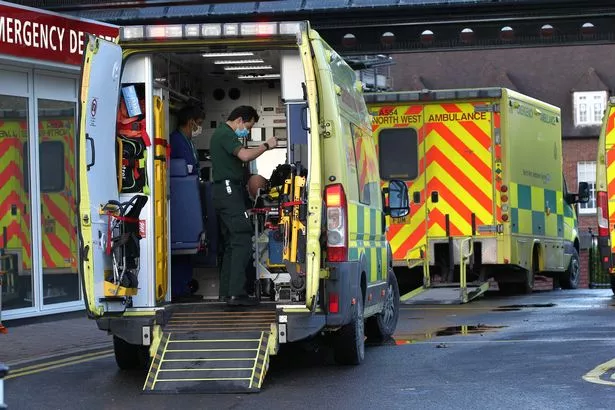 At Wigan’s major A&E, 48 mental health patients waited longer than 12 hours for a bed in the first two months of this year alone(Image: Adam Vaughan)
At Wigan’s major A&E, 48 mental health patients waited longer than 12 hours for a bed in the first two months of this year alone(Image: Adam Vaughan)
A Department of Health and Social Care spokesperson said: “People with mental health issues are not getting the support or care they deserve, and we know that many NHS staff feel burnt out and demoralised, having been overworked for years.
“That’s why this government is investing an extra £680m in mental health services this year, to help recruit 8,500 more mental health workers, and put mental health support in every school.
“We have also launched one of the world’s first 24/7 mental health crisis support services via NHS 111 and announced a £26m investment in new crisis centres, to ensure patients can get timely support from a trained mental health professional.”
RCN General Secretary and Chief Executive Professor Nicola Ranger said: “Severely ill mental health patients waiting days for treatment in stressful and brightly lit A&Es is a scandal in plain sight. These conditions are not ‘the norm’ and nursing staff will not accept them.
“If parity of esteem between mental and physical health is to mean anything, then these utterly degrading waits must end.
“Nothing less than urgent and sustained investment in community mental health nursing can ensure everybody gets timely care in the right place. That is how you turn people’s lives around and ease pressure on emergency departments.”
